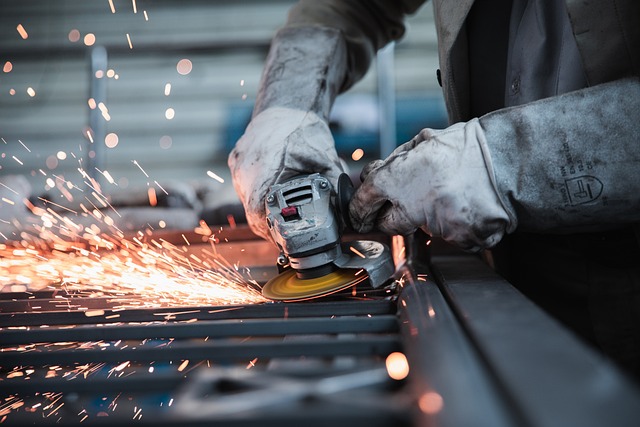Start with Training: Pathways to Welding Jobs in Spain
Welding companies in Spain are actively looking for dependable workers. If you're interested in starting a hands-on career, welding may offer the kind of stability and structure many seek. Short-term training programs are often available to help you get started, even without prior experience. Understanding how to qualify and what the work involves is a smart first step.

How can welding training open doors to local job opportunities?
Welding training is the key to unlocking a wide range of job prospects in Spain’s diverse industrial landscape. By acquiring specialized welding skills, you position yourself as a valuable asset to employers across various sectors. Many Spanish companies prioritize hiring locally trained welders who understand regional standards and practices. Completing a recognized welding program not only equips you with technical expertise but also demonstrates your commitment to the trade, making you an attractive candidate for local businesses seeking reliable welding professionals.
What will you learn during welding preparation programs?
Welding preparation programs in Spain are designed to provide comprehensive training in both theoretical knowledge and practical skills. Typically, these programs cover a range of welding techniques, including:
-
Arc welding (SMAW)
-
Gas metal arc welding (GMAW/MIG)
-
Gas tungsten arc welding (GTAW/TIG)
-
Flux-cored arc welding (FCAW)
You’ll also learn about welding safety protocols, blueprint reading, metallurgy basics, and quality control procedures. Many programs incorporate hands-on practice sessions, allowing you to gain real-world experience under the guidance of experienced instructors. This practical approach ensures that you’re well-prepared for the demands of the job market upon completion of your training.
Who is a good fit for welding work, and what can you expect on the job?
Welding work is well-suited for individuals who enjoy hands-on tasks, have good hand-eye coordination, and possess attention to detail. Physical stamina is important, as welders often work in various positions and environments. A strong work ethic and the ability to follow safety protocols are also crucial traits for success in this field.
On the job, welders in Spain can expect to:
-
Work on diverse projects ranging from small repairs to large-scale industrial constructions
-
Collaborate with other tradespeople and engineers
-
Adhere to strict safety guidelines and quality standards
-
Potentially travel to different job sites or work in fixed locations, depending on the employer
-
Continuously learn and adapt to new welding technologies and techniques
What are the main industries hiring welders in Spain?
Spain’s welding job market is diverse, with opportunities spread across several key industries:
-
Shipbuilding and repair: Spain’s coastal regions host numerous shipyards that require skilled welders.
-
Automotive manufacturing: The country’s automotive sector is a significant employer of welders.
-
Construction: Both residential and commercial construction projects demand welding expertise.
-
Aerospace: Spain’s growing aerospace industry offers specialized welding opportunities.
-
Energy sector: Renewable energy projects, particularly wind farms, create demand for welders.
How can you find and enroll in welding training programs in Spain?
To find welding training programs in Spain, consider the following options:
-
Vocational schools (Formación Profesional): These institutions offer specialized welding courses as part of their curriculum.
-
Technical institutes: Many technical schools provide comprehensive welding programs.
-
Private training centers: Some companies offer intensive welding courses tailored to industry needs.
-
Apprenticeship programs: Combining on-the-job training with classroom instruction, these programs are an excellent way to enter the field.
To enroll, typically, you’ll need to:
-
Meet age requirements (usually 16 years or older)
-
Provide proof of basic education
-
Pass a basic aptitude test in some cases
-
Demonstrate physical fitness for the job
What are the certification requirements for welders in Spain?
Certification is crucial for welders in Spain, as it validates your skills and increases your employability. The main certification body in Spain is the Spanish Association for Standardization and Certification (AENOR). They offer various welding certifications based on European and international standards.
Key certifications include:
-
EN ISO 9606: Qualification testing of welders for fusion welding
-
EN 1090: Execution of steel structures and aluminium structures
To obtain certification:
-
Complete an accredited welding program
-
Pass theoretical and practical exams
-
Renew certifications periodically as required
| Training Provider | Program Duration | Certification Offered | Estimated Cost (€) |
|---|---|---|---|
| CESOL | 3-6 months | EN ISO 9606 | 2,000 - 3,500 |
| IFES | 4-8 months | EN 1090 | 2,500 - 4,000 |
| FOREM | 2-4 months | Basic Welding Certificate | 1,500 - 2,500 |
| TÜV Rheinland | 1-3 months | International Welding Specialist | 3,000 - 5,000 |
Prices, rates, or cost estimates mentioned in this article are based on the latest available information but may change over time. Independent research is advised before making financial decisions.
In conclusion, welding training offers a solid pathway to diverse job opportunities in Spain. By investing in quality education and certification, you can position yourself for a successful career in this in-demand field. The combination of theoretical knowledge, practical skills, and industry-recognized certifications will make you a valuable asset to employers across various sectors of the Spanish economy.




